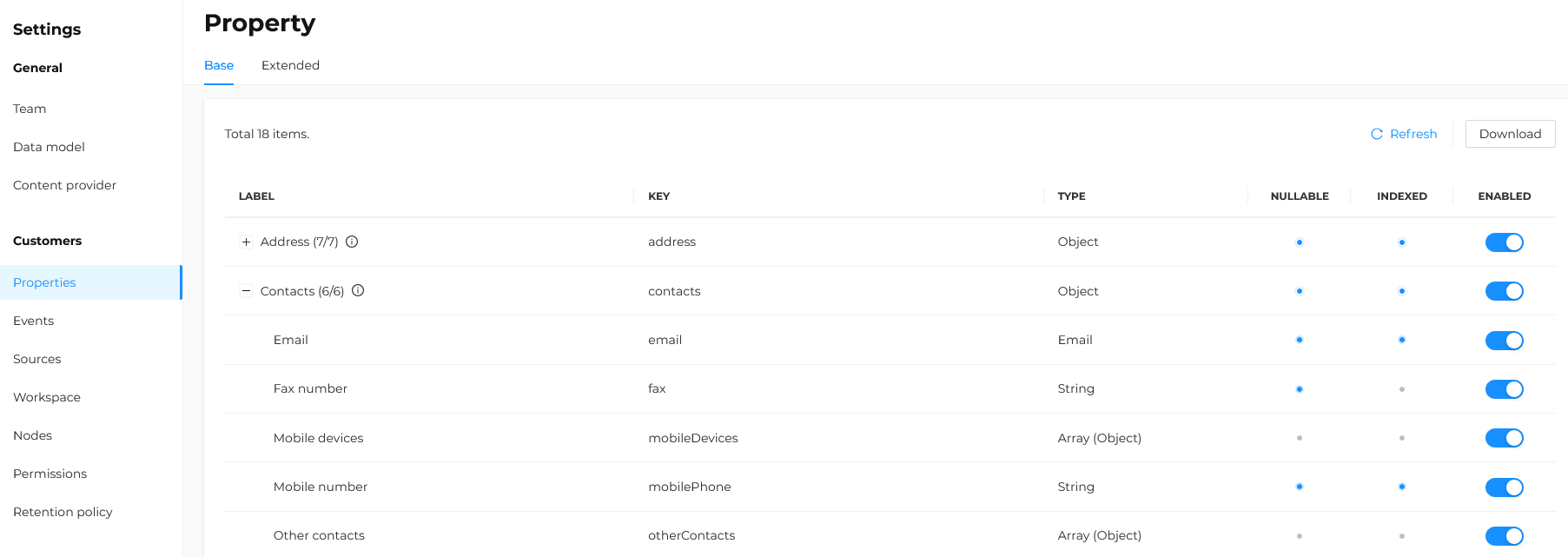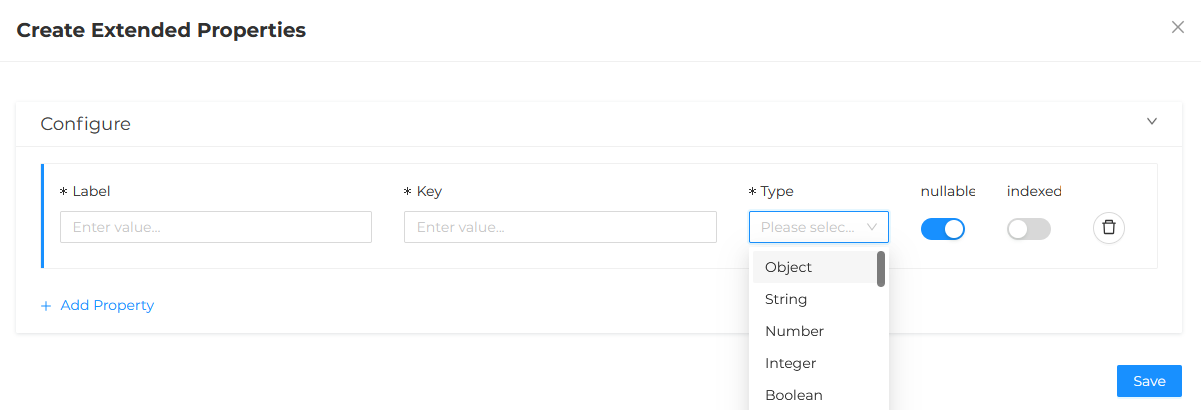Properties
The database properties are organized in a document-oriented manner. This means they are not just a flat series of populated or unpopulated fields but a flexible structure that contains specific elements according to needs. The list of properties is available here or directly in the interface, at the bottom of the Settings > Customers > Properties section.
Base Properties
The platform provides predefined properties called Base, which can be enabled or disabled from the UI in the Settings > Customers > Properties > Base section. If the property is enabled, the switch is green. When it is disabled, the switch is gray. Some properties have sub-properties. To view them, click the downward arrow next to the property type. If one or more sub-properties are disabled, the parent property's switch is dark gray. You can disable all sub-properties by using the switch that belongs to the parent property.

It is not possible to create new base properties.
Extended Properties
Custom properties are referred to as Extended Properties. You can enable or disable an Extended Property in the same way as Base Properties, in the Settings > Customers > Properties > Extended section.
In the same tab, you can create new extended properties by clicking the appropriate button.
In the creation form, you must specify:
- The Label that indicates the property. This is what will be visible in the UI.
- The Key used to identify the property in the database. It cannot include spaces or special characters.
- The Type to specify the kind of property, such as string, number, integer, boolean, etc.
- Nullable: whether the field can be set to null.
- Indexed: whether this is an indexed field and can be searchable in the search engine within the Customers area. In addition to the default enabled fields, up to 10 additional fields can be selected.

It is not possible to delete or modify an Extended Property.
Download a JSON File
To download a JSON file with the schema of all Base or Extended properties:
- Click on Download.
- The JSON file will be downloaded locally and can be opened with a suitable program.
Data Types
The following traditional data types are available:
- String
- Number
- Boolean
- Date
- Date and Time
- URL
- IPv4
- IPv6
Additionally, you can create properties with the following data types:
- Array
- Object